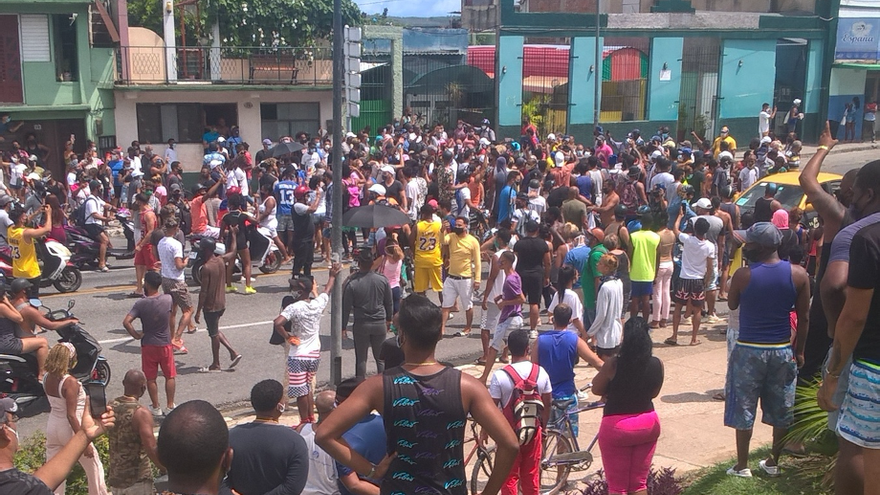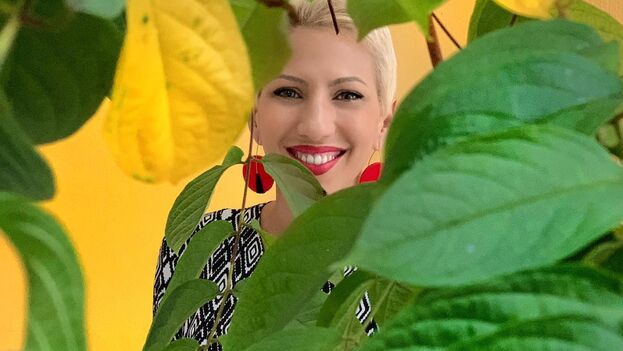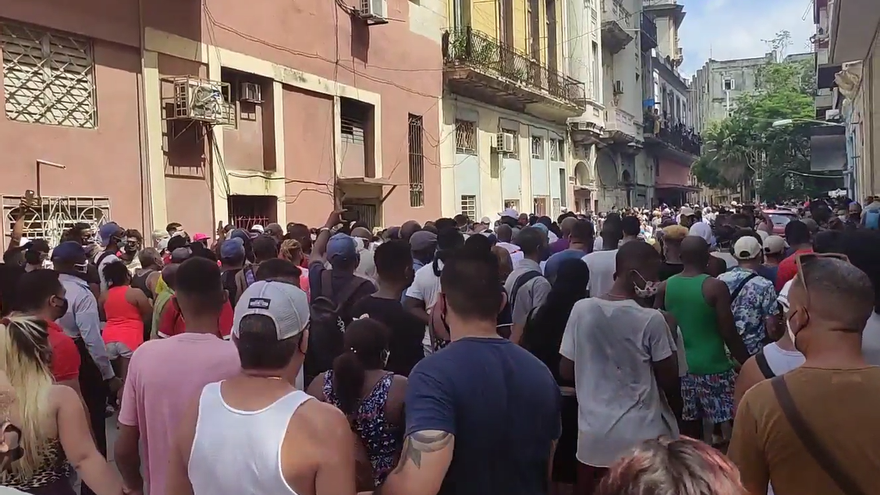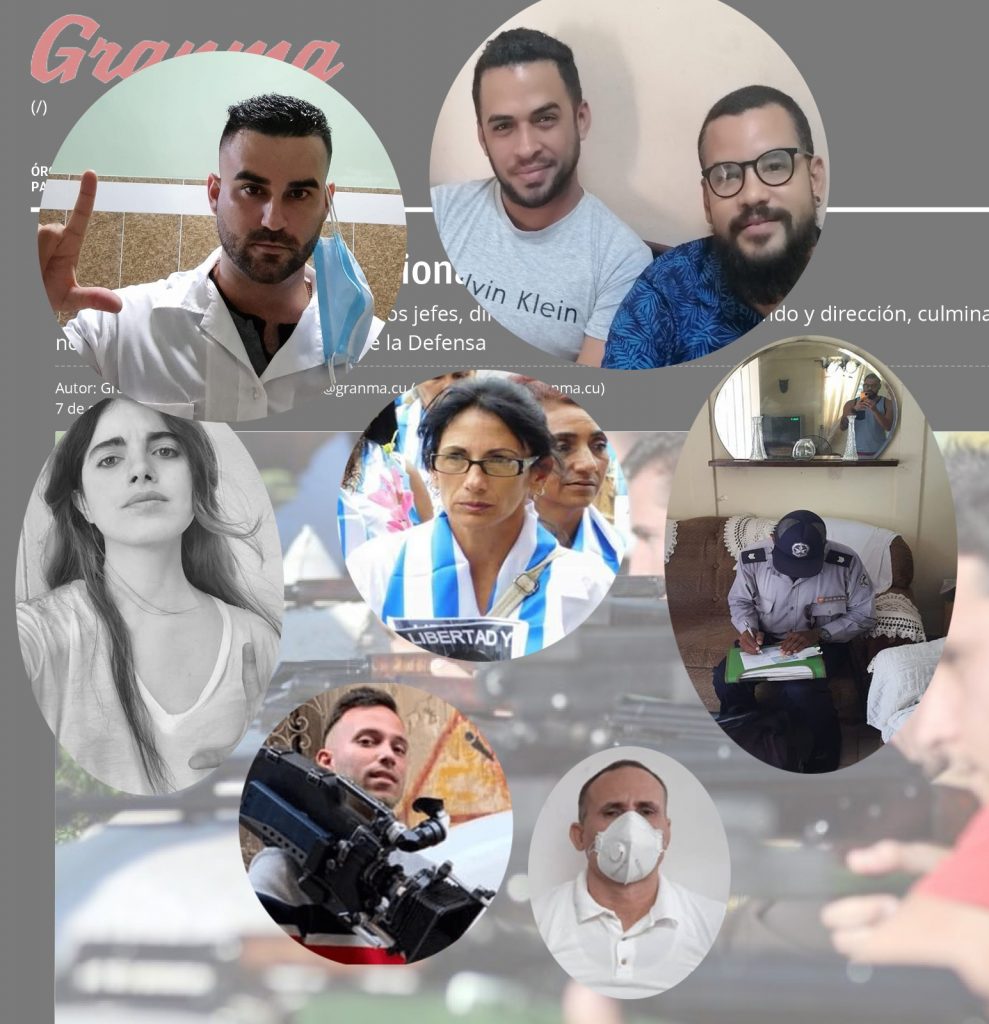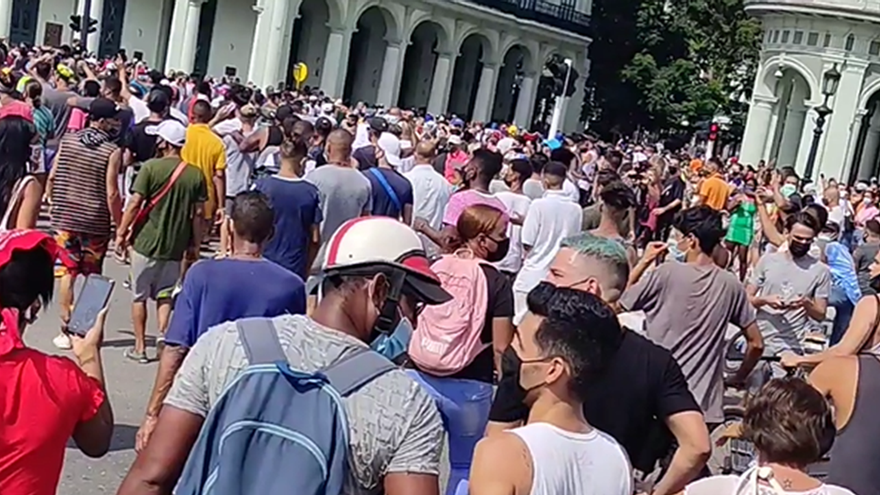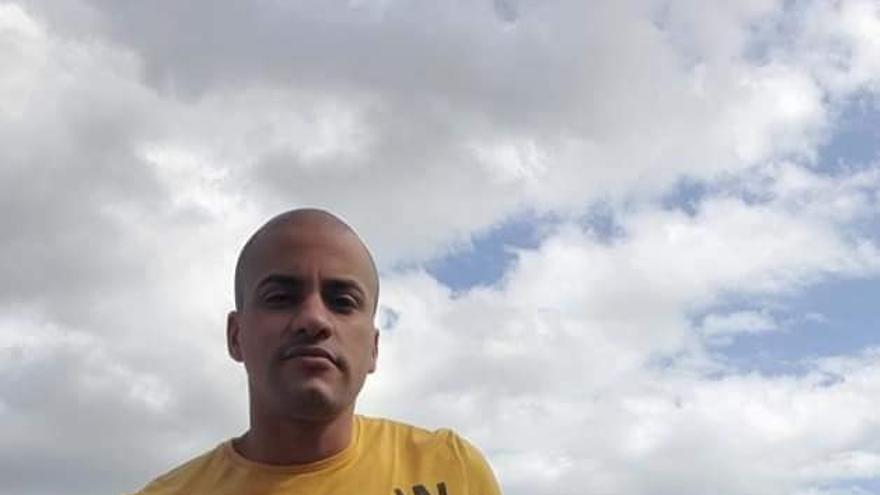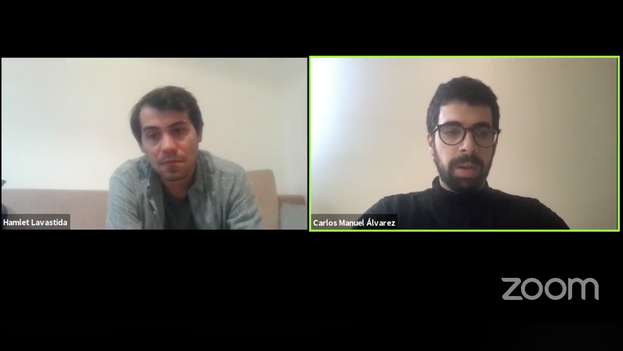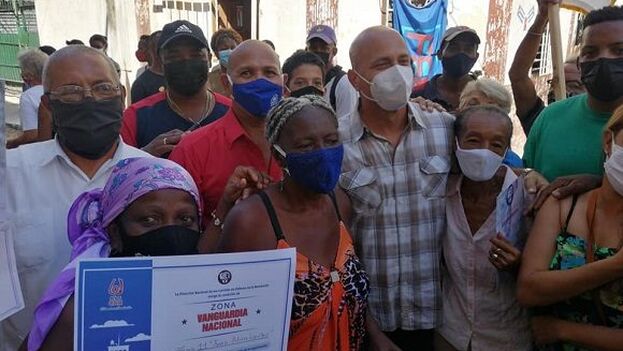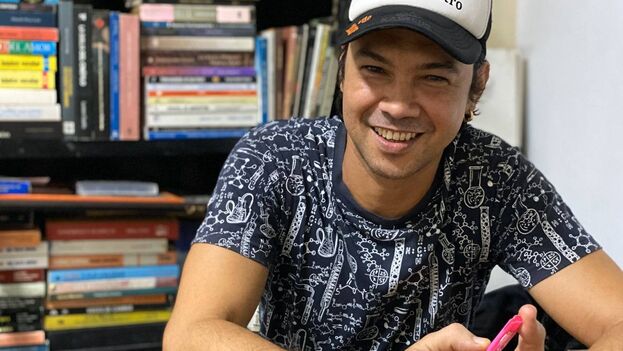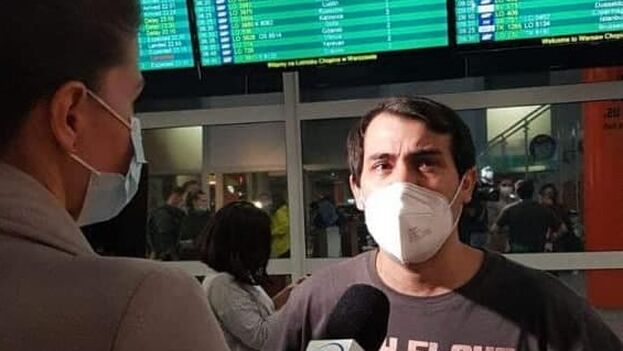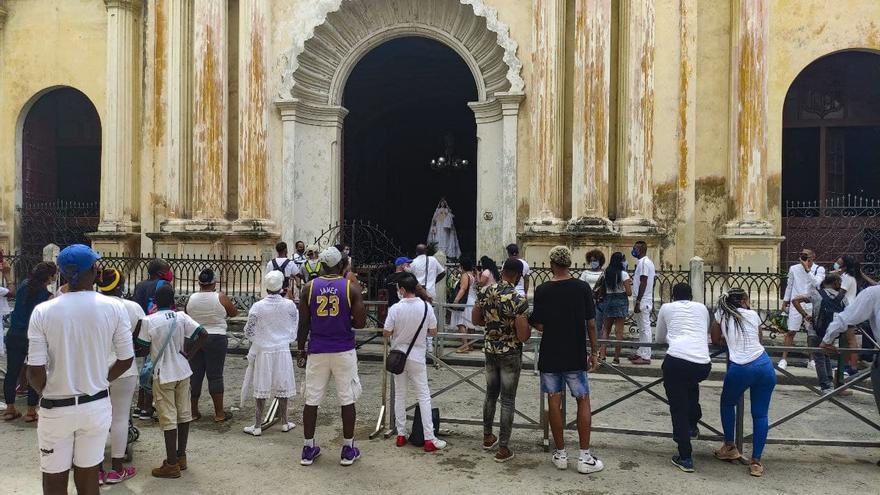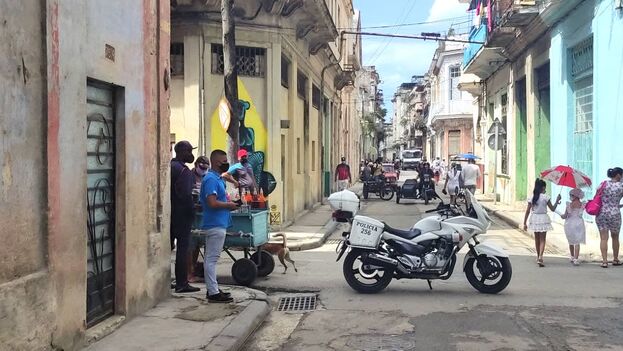All this has happened without interrupting the work he does with his theater group. Without losing the smile that always accompanies him, he talks with 14ymedio about 20N, his hopes, and persecuted art in Cuba.
within the intellectual, academic and artistic world, in part because many need to feel like a valid interlocutor before the authorities, the institutions, the power, and that fills you with limitations. Over time, I have tried to shed those prejudices; to not accept those impositions they have tried to sow in our minds, that it is not possible to speak with certain Cubans, that they have no legitimacy; to forget about all the labels that are placed on the traditional opposition or on the Cubans who have decided in one way or another to take on dissidence, activism, in the face of a totalitarian and abusive power.
“I have tried to shed those prejudices; to not accept those impositions they have tried to sow in our mind, that it is not possible to speak with certain Cubans, that they have no legitimacy.”
Colliding with all the limitations, with State Security, with surveillance, with having gone to jail, with not being able to leave my house sometimes because agents prevent me, with having my internet cut off; these are things most artists and intellectuals have not experienced, which is why they view this type of situation from a distance, sometimes from a comfortable distance.
Escobar. Many may say that you have been radicalized.
García. The proximity of these realities of which I spoke has been very uncomfortable, which makes it increasingly transparent in the essence of what I am seeking. It is not about portraying the most moderate image possible so that some, who have not yet understood the Cuban reality, do not reject my speech, but rather assume the truth and behave honestly. Rather than radicalism, I would like to call it total transparency, not wearing masks.
Escobar. How much has the treatment received from the government’s repressive apparatus changed in recent months?
García. The discourse of power has become quite clear in recent times. At first they treat you as if you are confused, they try to approach you as someone who is perhaps surrounded by bad company. They try the discourse of the good cop who pretends to help you, who wants you to continue doing your work as an artist without it affecting you too much. But when you maintain a firm position, to continue thinking as you have decided and acting in accordance with the way you think, the pace of surveillance increases, the pressure on you increases and then there is now an officer who attends to you and they start limiting your rights.
The first time was shortly after November 27th, when an agent named Jordan prevented me from leaving my house and said that he was coming on behalf of the Cuban people. But now, for example, that same agent has already approached relatives and friends trying to pressure them, always with a speech in which he purports not to position himself as an enemy.
“Now, for example, that same agent has already approached relatives and friends trying to pressure them, always with a speech in which he purports not to position himself as an enemy.”
With their clumsiness, they help you define yourself as an artist, as a citizen, as a Cuban. You start to truly see all the repression, all the abuses, the lack of freedom and you begin to live it closely, no longer in a book or in an interview.
Escobar. How much has your relationship with arts institutions changed in the last year?
García. I want to continue being an artist, I would love to be able to continue doing theater, making movies, even television. It is something that I would never give up because it is the essence of who I am, but of course I also want to continue engaging in activism, functioning as a human being, as a citizen of a country. Sometimes people tell me, “dedicate yourself to writing”; as artists they have always instilled in us that if you have a talent you must exploit it and if you are an artist “you must speak through your work.” But I wonder: would they have said the same to José Martí, who was an excellent poet, who was a playwright? How would Lorca or Brecht or any other artist have reacted? We live in a concrete reality and one does not spend one’s entire life being an artist; most of the time you are a citizen and you have to go stand in a line, be at the bus stop, move around.
With the institutions it has been a bit tough. Right now the theaters are closed, my group is still open, they continue to pay us a salary, but we don’t know if when the theaters open they will let us present our works. For example, I have received some refusals: a telenovela project that I was working on will no longer be possible. I don’t know if from now on I will have to write under a pseudonym.
What I do know is that I could not continue belonging to an organization like the Union of Writers and Artists of Cuba (Uneac) after their complicit silence with regard to the repression and abuse which followed July 11th. An organization that perfectly accepts a power that represses its citizens and violates their rights, imprisons people for exercising their right to demonstrate and does not direct a single word to the citizenry, one whose speech is in favor of that abusive power, is an organization to which I cannot belong. That’s why one of the first decisions I made after July 11th was to give up my membership.
What I do know is that I could not continue belonging to an organization like the Union of Writers and Artists of Cuba (Uneac) after their complicit silence with regard to the repression and abuse which followed July 11th
Escobar. How was the group Archipiélago born and how would you define it?
García. As a playwright, I obviously have a constant dialogue with the work of Virgilio Piñera. That notion of him on the Island is a reference for me, the unfortunate circumstance of the water everywhere, it is something that has always also evoked in me a slightly dissident response. Yes, okay, we are an island, but we really are an archipelago.
From the poetic point of view and from the political point of view, the notion of the island has been extremely present, of being separated from the world, of reacting like a monolith, of that false unity that is nothing but exclusion, because that unity is about excluding anyone who does not accept the official discourse. That is why, in contrast to Virgilio’s idea, I prefer to think in terms of an archipelago rather than an island.
We are different islands, we have the right to think differently, to propose different notions of a country, but in the end we have to live together in the same space. It is a concept that does not deny the difference.
We want to build a diverse country where differences are respected and where there is space for dissent, not only for the different ideas that already exist, but for new ones that may arise. Establishing a dogma, a single standard, an immovable model seems to me anti dialectical, something irrational.
Escobar. Why the November 20 march?
García. In all of history, those who are discriminated against have never obtained rights by gift or grace of the group in power. Rights have been conquered and they have been conquered through civility, through social participation, through marches, and through struggle in the streets. This is what happened with minority communities, with all those groups or people who have been discriminated against in the history of humanity, therefore marching is a right, demonstrating is a right which definitely must be conquered in Cuba.
In more than 60 years, an anti-government demonstration has never been allowed and we believe it is time to finally conquer that right, which is in the Universal Declaration of Human Rights and in the Cuban Constitution itself.
In more than 60 years, an anti-government demonstration has never been allowed and we believe it is time to finally conquer that right, which is in the Universal Declaration of Human Rights.
We are living in a moment of crisis which perhaps has seldom been experienced in the history of Cuba, a crisis in all sectors. There is a popular dissatisfaction and discontent that grows daily. It is not about taking advantage of that discontent, it is about showing solidarity with it, taking it on as our own, because we are part of that dissatisfied society, which needs to change the reality of Cuba; and perhaps the most obvious way to do that is by demonstrating, going out to the streets to tell the government that we need a new social pact, that the one they have imposed on us has expired, is inefficient and has failed.
Escobar. How do you experience the smear campaign launched by various official sites and groups against you following your call to march?
García. What I have felt is a lot of solidarity from people who no longer subscribe to these types of attacks and who realize they are defamation campaigns to dehumanize you. When they have no way to attack you, they invent. They have to link you to the CIA, or call you a “mercenary” or “annexationist,” which is a ridiculous 19th century idea. I don’t believe any Cuban currently thinks of annexing the country to any territory, we are doing everything within sovereignty, we do it without any type of economic interest. No one is paying us to organize this march; those who oppose us have nothing to say, therefore they have to lie. What it also shows is that this no longer works for them: a large part of society realizes that this is manipulation. On the contrary, every day the messages of support grow, the people who say I am with you and I am going to march and see you on November 20. That old discourse is over, they failed, they have lost the battle ideologically and socially, they no longer fool anyone.
There are things one cannot fully understand until you experience them in your own flesh. When they use the same lies against you that they already used against others, you realize that they were lying when they stigmatized those people, and that also generates a feeling of solidarity with those who, before you, have been fighting for their ideas and have been demonized by those in power. I believe that this has also made us unite perhaps as never before. We are reaching a consensus that may be unprecedented. There is a general feeling of respect that we do not think alike and we have different strategies for the country we want to build, but it is time to unite.
Translated by: Silvia Suárez
____________
COLLABORATE WITH OUR WORK: The 14ymedio team is committed to practicing serious journalism that reflects Cuba’s reality in all its depth. Thank you for joining us on this long journey. We invite you to continue supporting us by becoming a member of 14ymedio now. Together we can continue transforming journalism in Cuba.
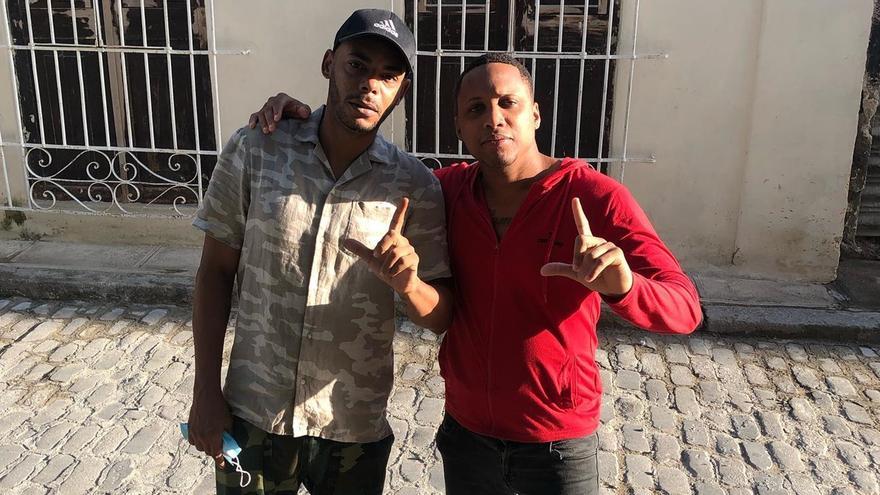
![]() 14ymedio, Havana, October 20, 2021 — The United Nations issued a statement which concluded that rapper Denis Solís as well as Luis Robles Elizastigui, the so-called “young man with the placard”,were detained arbitrarily. The text, dated October 14th, was published Wednesday by Cuban Prisoners Defenders (CPD), the organization which denounced both cases before the Arbitrary Detentions Working Group.
14ymedio, Havana, October 20, 2021 — The United Nations issued a statement which concluded that rapper Denis Solís as well as Luis Robles Elizastigui, the so-called “young man with the placard”,were detained arbitrarily. The text, dated October 14th, was published Wednesday by Cuban Prisoners Defenders (CPD), the organization which denounced both cases before the Arbitrary Detentions Working Group.
